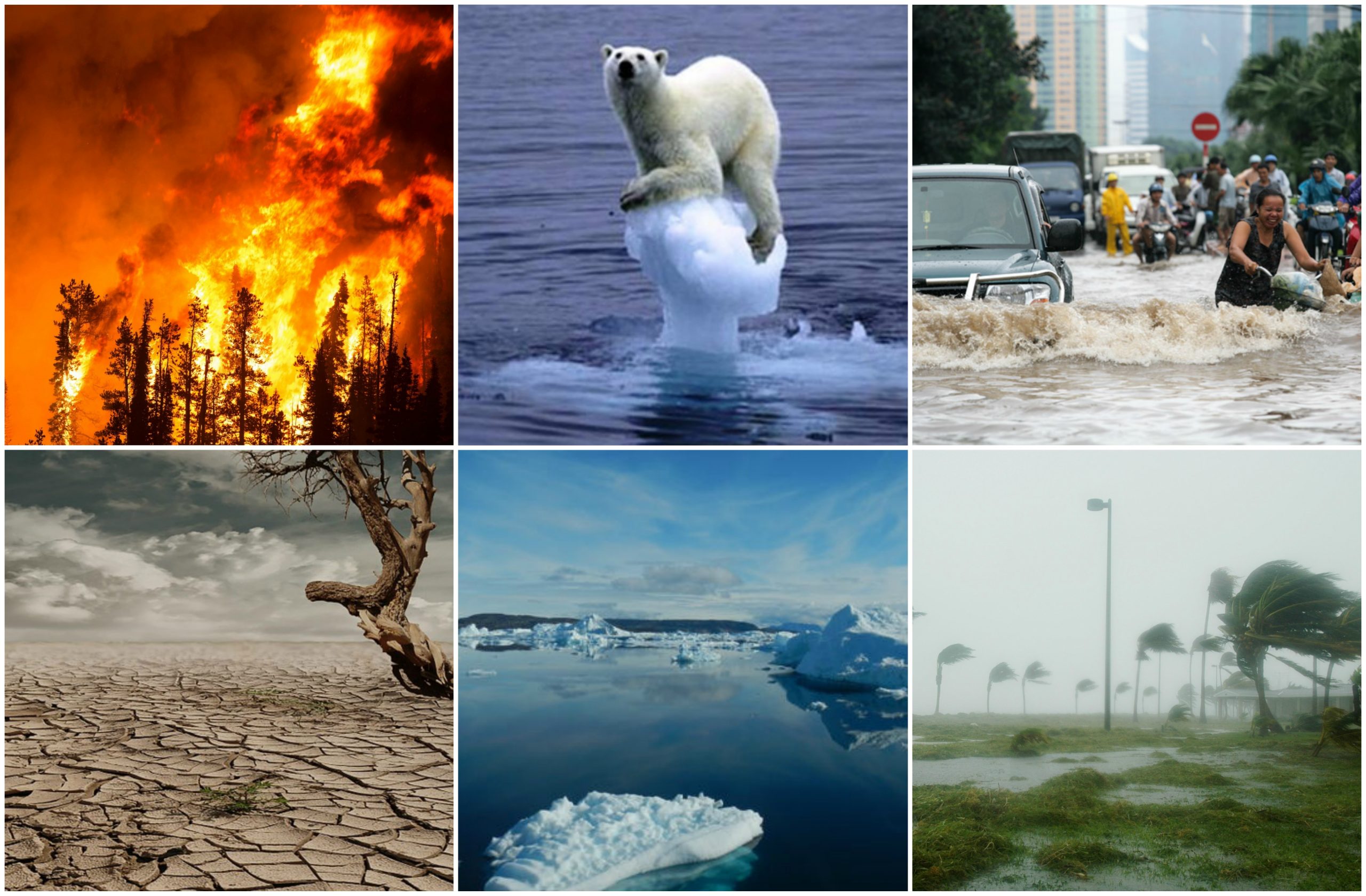
IPCC Report – Reminder of an Impending Climate Catastrophe
Mon, 16 Aug 2021 | Reading Time: 5 minutes

IPCC Report – Reminder of an Impending Climate Catastrophe
Dr Dhanasree Jayaram
The Working Group I contribution to the Sixth Assessment Report of the Intergovernmental Panel on Climate Change (IPCC), providing an up-to-date status of the physical science basis of climate change, has been termed as “code red” by many, including the UN Secretary-General António Guterres. The report spells out several warnings that the climate scientists have highlighted for decades – albeit with much higher confidence now. The international community no longer needs to be tutored about the contribution of human activities to climate change, and yet it just concretizes it further, perhaps for the benefit of those who still live in ‘climate denial’ or ‘climate skepticism’.
The report is a significant document that provides us a more nuanced picture of the current state of climate, how much it has changed over the past years, and what does the future hold for the humankind if climate change is not acted upon concertedly on an urgent basis. Climate change is no longer a future concern. It is happening now, affecting millions of lives in adverse ways, and it is expected to get far worse, according to different scenarios based on temperature rise. What does the report mean for geopolitics and security? What does it mean for India? There are many questions; and although most of the answers are well-known, the international community has continuously delayed climate action.
The IPCC report reinforces the ‘inevitable’
The key takeaways from the report throw light on several issues that the international community has to work towards through international cooperation. With greater strides in science, it has been able to establish much stronger links between climate extremes, including specific events such as floods, droughts, heatwaves, wildfires, etc. and rising temperatures (and associated effects). This is a major shift as earlier, the focus was largely on the increasing frequency and intensity only. Moreover, the report clearly states that if climate action does not occur at an accelerated pace in the next few years, the world will reach the 1.5°C mark (temperature increase) much before 2040.
Some of the changes are dangerously close to being considered irreversible (and perhaps even unavoidable) such as sea level rise, ocean acidification, retreating glaciers, collapsing ice sheets in Greenland and Antarctica, permafrost thaw in the Arctic, and so on. Under the worst-case scenarios, many tipping points could be exceeded, thereby leaving many more vulnerable to the effects of climate change.
Recent climate extremes such as soaring record temperatures in the British Columbia (over 49°C, floods in Europe and China, and wildfires in Greece are indicators of what is in store for the humanity. What is equally important to note here is that even the much hyped net-zero targets set by several countries (around 2050) may not be able to deliver the desired results, especially since the sinks (that are expected to help these countries achieve these targets) such as oceans and forests are extremely stressed. Hence, real action will entail a massive overhaul of all systems of governance.
The IPCC report is a code red for human security
As climate change worsens, it will have an enormous impact on livelihoods, infrastructure, food and water security, supply chains, human health, etc. – affecting the marginalized sections of the society more than the others. Regions such as South Asia are considerably vulnerable due to the additional problems of air pollution. The countries in the region, including India, will witness increasingly unpredictable patterns of rainfall (such as more frequent intense rain episodes), more “extreme heat episodes”, and heavy rains in urban areas due to the heat island effect (cities being typically hotter than the surrounding areas), etc.
Heatwaves are already affecting economic growth by hampering workforce productivity. A large number of the workforce in the region are employed by informal sectors such as construction and other outdoor-oriented industries. According to a study, “if the daily average temperature rises by one degree, the annual output of a factory will fall by 2.1% over the year” in India. The agricultural sector, which is already in considerable distress, will be further hit by the effects of climate change. With the lengthening of the Southwest Monsoon and other changes, as indicated in the IPCC report, the farming communities that are immensely dependent on the monsoon will have to remodel several existing practices that are attuned to a certain precipitation regime.
As rural and urban challenges mount, the governance mechanisms will have to find solutions to the escalating stress (demographic, environmental, etc.) on the deteriorating resource base (food, water, energy, etc.), extreme weather events, worsening livelihood insecurities (that influence migratory patterns and even create other types of insecurities such as physical, health, etc.), and increasing stress on infrastructure facilities, among others. In particular, the Hindu-Kush Himalaya region and coastal areas will be further stressed, as glaciers decline, sea level rises, tropical cyclones intensify, and so on. These changes effectively threaten human, economic, resource, physical, health, and social security of millions of people in India, and more broadly, the South Asian region.
The IPCC report’s (geo)political effects
The IPCC report is expected to reinforce some old geopolitical faultlines (specifically North-South) as much as many envisage it to foster cooperation. It basically reemphasizes the inequity in terms of – not only the disproportionate effects of climate change on the developing countries despite contributing much lesser to climate change in comparison to the industrialized countries, but also carbon space that has been misappropriated by the industrialized countries, leaving very little room for the developing ones to emit CO2.
In every sense, the developing countries such as India have far more to lose in this climate-cum-geopolitical context. There will be rising pressure on India to adopt a net-zero emissions target – in line with the other players such as the United States, European Union, China, South Africa, and others. At the same time, the industrialized countries’ unfulfilled promises on climate finance will hamper the developing countries’ ability to both mitigate and adapt to climate change. As future emissions by countries such as India contribute further to climate change, the onus on them to reduce greenhouse gas (GHG) emissions, including carbon dioxide, aerosols, and methane, will increase.
The future of climate action?
India is presently the third largest GHG emitter, and its emissions are expected to grow further in the coming years. The country cannot afford to compromise on economic development at this stage. Beyond its augmented investments in renewable energy, establishing climate policy institutions, and introducing several climate-friendly policies, India needs an unambiguous policy on climate action that permeates all sectors, development policies, institutions, and actors – institutionalizing a whole-of-government approach towards climate action. It needs to go full throttle on green transition by combining this process with the principles of climate justice, thereby ensuring a just transition.
To achieve the 1.5°C target and other goals of the Paris Agreement, the world has to come together; and most importantly, the industrialized countries have to step up their efforts to drastically reduce emissions and provide climate finance to the developing and least developed countries.
From the COVID-19 pandemic, the world has learnt the lesson that such crises can cripple every aspect of human life on Earth in the most unpredictable and catastrophic ways. Climate change is a systemic issue and any solution needs to take account of various types of vulnerabilities, resources, and capacities. The IPCC report further highlights the need for bolstering the multilateral agenda to tackle a challenge that is as colossal as climate change.
*********
Author

Dr Dhanasree Jayaram is an Assistant Professor, Department of Geopolitics and International Relations, and Co-coordinator, Centre for Climate Studies, Manipal Academy of Higher Education (MAHE), Karnataka, India. She is also a Research Fellow, Earth System Governance and Member, Climate Security Expert Network. She holds a PhD in Geopolitics and International Relations from MAHE. She pursued a visiting fellowship (Erasmus Mundus – short-term PhD) at Leiden University, the Netherlands during 2014-15; and a postdoctoral fellowship at the University of Lausanne, Switzerland, under the Swiss Government Excellence Scholarship during 2018-19. She is the author of “Breaking out of the Green House: Indian Leadership in Times of Environmental Change” (2012), and “Climate Diplomacy and Emerging Economies: India as a Case Study” (2021).
********
Reference for image – greenschoolsns.ca
Disclaimer
The opinions expressed in this article are the author’s own and do not reflect the views of Chanakya Forum. All information provided in this article including timeliness, completeness, accuracy, suitability or validity of information referenced therein, is the sole responsibility of the author. www.chanakyaforum.com does not assume any responsibility for the same.
Chanakya Forum is now on . Click here to join our channel (@ChanakyaForum) and stay updated with the latest headlines and articles.
Important
We work round the clock to bring you the finest articles and updates from around the world. There is a team that works tirelessly to ensure that you have a seamless reading experience. But all this costs money. Please support us so that we keep doing what we do best. Happy Reading
Support Us




















POST COMMENTS (0)